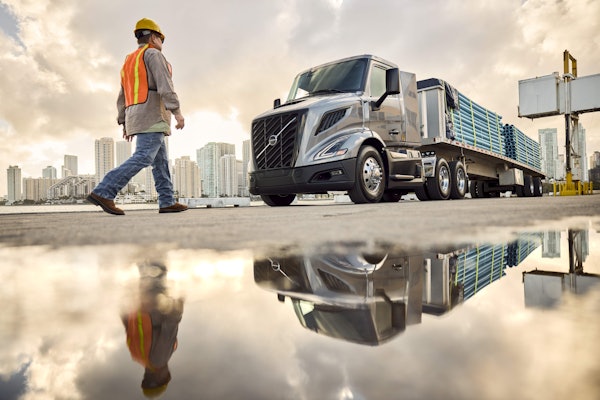
“One thing we’ve learned over the years is a lot of dealers don’t work on the weekends but we are working 24/7,” says David Parker, CEO, Covenant Transportation. “We only have three shops so we are very dependent on the outside … but you have to be there.”
Darren Hawkins, CEO, YRC Worldwide, says his operation’s service focus is much greater than Covenant — YRC has more than 100 terminals and nearly 1,200 technicians. He says the LTL carrier does most of its maintenance work and as much unit down service as possible. But with 45,000 trailers, Hawkins says YRC inevitably has situations when a trailer needs immediate service and the carrier has to look for outside help. In those circumstances, he echoes the same message as Parker.
“There is a lot of happening every week at the terminal level and every terminal manager is always looking for someone they can rely on,” Hawkins says.
Premier Trailer Leasing’s President and CEO Jim AuBuchon kept up the consistent messaging. AuBuchon says Premier’s focus isn’t to make money on service. Instead the company outsources as much as it can to ensure its equipment is back with its customers and on the road immediately. But like the other carriers, AuBuchon says he still has issues finding the right dealer partners. He says dealers slow to respond to requests or unwilling to clearly provide up-front price and repair data are tough partners for a company that focuses on transparency for its own customers.
Fleets also expect information from their dealer partners. As a tanker-exclusive fleet, J&M Tank Lines is unique from Thursday’s other panelists because it keeps its trailers for much longer, says CEO Harold Sumerford. J&M also performs nearly 70 percent of its own maintenance, Sumerford says, which means the company’s dealer partnerships aren’t only important for new equipment purchases and replacement parts, but also for guidance on how to maintain older equipment used for specialty applications. He says dealers who provide training and product expertise are likely to earn more business with his fleet.
Says Sumerford: “Help us understand the technology.”
FTR’s Starks provides economic update

Addressing first the general economy and then zeroing in on the transportation space, Starks says the 2019 has been an interesting one for those in his field. He says the political uncertainty in Washington D.C., both due to President Trump’s scandals and the nation’s trade dispute with China, have made it slightly more difficult to evaluate how the U.S. economy is likely to perform over the next year.
He says today the economy is being buoyed by strong consumer spending. Manufacturing has eased (again, due to the trade uncertainty) but U.S. consumers are still buying and spending at a rate to maintain stable GDP growth. Starks says if U.S. consumers were to suddenly stop buying the market would likely weaken, but right now no major indicators show that might happen.
In the trailer space, Starks says the vulnerability many feel today is likely the result of last year’s order boom, not any true weakness. He says FTR data shows the U.S. trailer market will likely sell more trailers this year than it did in 2018 before softening slightly next year. Starks says 2018 “disrupted the market and how we assess where we are” because orders came in so fast and in such great numbers.










